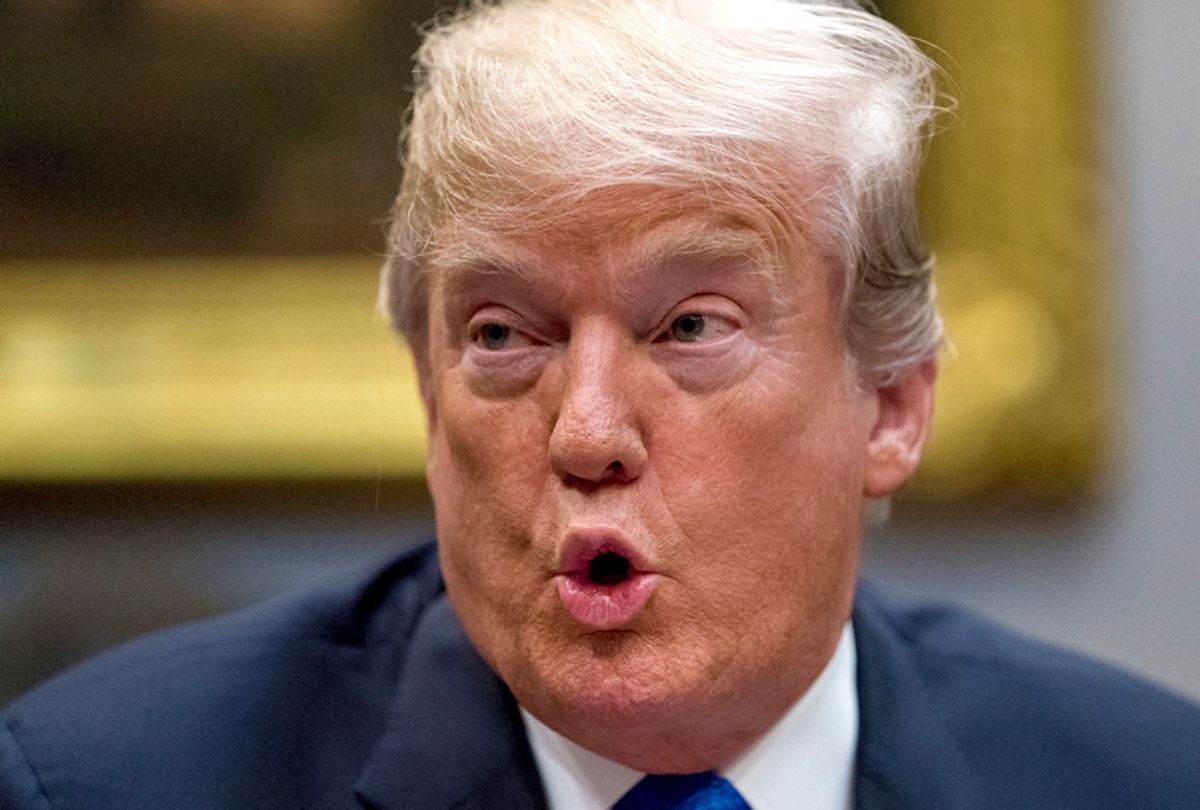The election of Donald Trump energized white supremacists both in America and around the world. With his campaign they emerged from the shadows of American public life and moved into the mainstream. This journey should not be a surprise. The Republican Party became the party of the Confederacy and racism (both overt and coded) in the post-civil rights era when it adopted the "Southern Strategy." The rise of the Tea Party movement against president Barack Obama was another moment when white supremacy became more vocal and mainstream in American politics. The racial authoritarianism and full-on embrace and endorsement of white supremacist beliefs by Donald Trump, his advisers, and his supporters under the banner of "ethno-nationalism" and "Making America Great Again!" is but the next logical step in a reactionary right-wing counterrevolution against the gains of the civil rights movement.
This effort to undermine the freedoms and equal civil and human rights of nonwhites (as well as those who are not right-wing "Christians") in America is taking place on several fronts. Republicans and other conservatives are using voter suppression, gerrymandering, and the courts to keep nonwhites and other groups that do not support the right-wing agenda from voting. The right wing is also undermining civil society, the social safety net, public education and any other area of American life that they feel equips citizens to be critical thinkers, to be engaged in the world around them, and to resist. The American right wing is also masterful in its ability to manipulate emotion and religion in the service of creating political and cultural change to advance their destructive goals. The "War on Christmas" is a great example of this strategy.
How is the so-called "War on Christmas" part of a larger strategy by Donald Trump, the Republican Party and movement conservatives to use white racism to win and keep political power? What role did white racism and white rage play in Trump's winning the White House? Is Donald Trump a white supremacist? What of his supporters? Why are they so full of rage? How does white supremacy and white identity politics structure American society? In what ways are both white liberals and white conservatives invested in such a system?
In an effort to answer these questions, I recently spoke with University of Oregon sociologist Randall Blazak. He is one of the country's leading experts on the neo-Nazi and white supremacist movements. Professor Blazak also spent several years infiltrating and studying neo-Nazi skinhead and other white supremacist hate groups. In addition to being the author of several books, he is also the chair of the Oregon Coalition Against Hate Crime.
Professor Blazak explains the connection between the "War on Christmas" and white supremacy as follows:
With Trump there is a normalization of white supremacist rhetoric. "Merry Christmas" in the right-wing context of the supposed "War on Christmas" is a pushback against multiculturalism.
Trump voters and other conservatives who respond to that language believe it is a political statement to say "Merry Christmas" because they feel their country, and everything sacred about it, is being taken away. The people who cling to the "War on Christmas" talking point do not have the skills to manage social change in a way that would actually make their lives better.
On Donald Trump and white supremacy:
It is easy to talk about Nazis and KKK members and not look at how white supremacy is one of the primary ways through which American society is organized.
On the day of the Charlottesville murder, I was asked on CNN what I would say if I were Donald Trump's speechwriter. Although I gave another answer, what I wanted to say was that I don’t think he gets it. I don’t think he’s smart enough. I don’t think he understands the reality of the persistence of racism in 2017 America. To be clear, I do not think that Donald Trump organizes his life as a white supremacist. But I do think that Donald Trump is a white supremacist, because he does not challenge his own racism. That is an observation that I would apply to all white people who do not take a look in the mirror and reflect about how they benefit from white supremacy. If you participate and benefit from that system, you are in fact a white supremacist.
He also believes that white liberals also need to do more work in reflecting on their culpability and investment in white supremacy:
...There is a concept known as performative allyship which applies to any issue where you are not the one who benefits from the liberation that you care about. For example, I could be, as a straight person, showing up in support of gay rights and then I go home and pat myself on the back and I hope somebody says, “Thank you for being there because I don’t have to be there.” Right? There is this performance of being an ally which doesn’t really involve risk, it doesn’t really involve challenging, it doesn’t really involve reflection. The next piece of the puzzle is that we need to get white people who are showing up for anti-racism activities, for example, to really look in the mirror and ask, “Why am I doing this? Do I really want to upset the apple cart of white privilege and white supremacy or do I want to get a pat on the back for being down for showing up at the Black Lives Matter rally?”
On this week's show, I reflect on the endless maelstrom of Trump's tweets, rumors, vile policies and the disorienting state of the malignant reality his petit-fascism and aspiring despotism have already inflicted on the American people (and the world) in the first weeks of 2018.



Shares